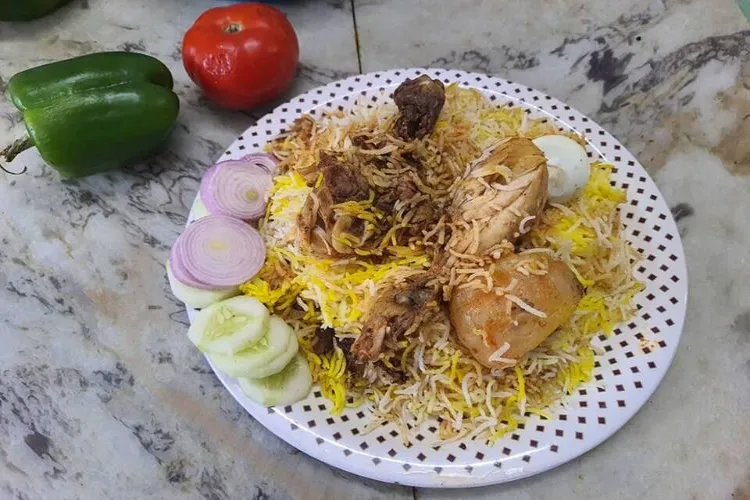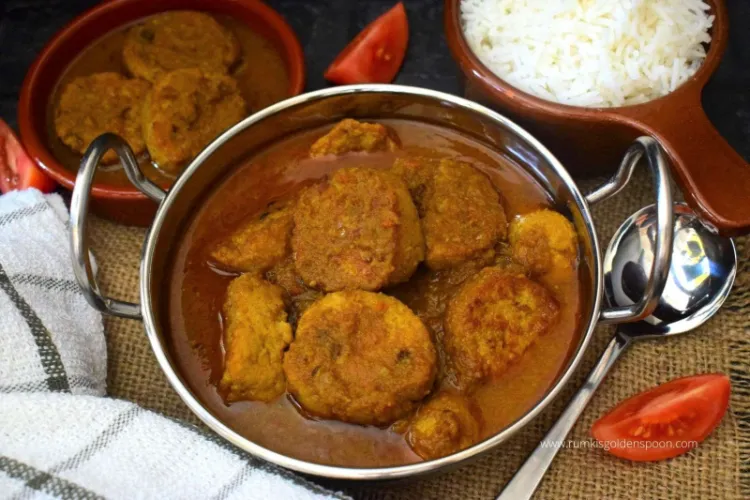_in_a_Guwahati_restaurant.webp)
Anupama Deb/Guwahati
As the sun sets over the serene Brahmaputra River, the streets of Assam's capital city Guwahati come alive. Once known for its traditional Assamese cuisine, the city is now embracing the vibrant and aromatic world of Bengali delicacies. The culinary journey that began in the heart of West Bengal has expanded its base to the urban centers of Assam, captivating the taste buds of both Bengali and non-Bengali residents alike.
The phenomenon of Bengali cuisine finding a home in Assam is no accident. It is a tale of cultural exchange, migration, and an evolving gastronomic landscape. In recent years, a growing number of Bengali families have migrated to Assam, bringing with them their rich culinary heritage. This migration has not only enriched the cultural tapestry of Assam but has also given birth to a culinary fusion that delights the senses.
One cannot talk about Bengali cuisine without mentioning the treasured Hilsa fish, fondly known as the "King of Fish." This delicacy has found its way into the hearts of Assamese food enthusiasts. The delicate, silvery fish, known for its unique flavor, is prepared with the utmost care, and its popularity has transcended cultural boundaries.

Dhakai Biryani
Another Bengali delight that has made its mark in Assam is Chitol Muitha or Chital Fish Roe. Prepared with a blend of spices and flavors, this dish has become a symbol of the culinary fusion happening in Assam. It's not uncommon to find non-Bengali households in Assam experimenting with these Bengali treasures, eager to recreate the magic in their kitchens.
A significant contributor to the Bengali culinary invasion in Assam is the presence of famous food chains in Kolkata. Restaurants like 6, Ballygunge Place, and Kasturi have become household names in Guwahati. These establishments serve authentic Dhakai cuisine, a cuisine that originates from the neighboring region of Dhaka, Bangladesh. Dishes like Dhakai Biryani, Bhapa Ilish (steamed Hilsa fish), and Sorshe Ilish (Hilsa in mustard sauce) have become staples on their menus, inviting locals to savor the essence of Bengal.
During the grand celebrations of Durga Puja, the Bengali community in Assam comes alive, and the aroma of Bengali cuisine fills the air. It's during this time that not only renowned food chains but also homegrown gems like "Maa Manasha" in Maligaon in Guwahati and Ajoy Hotel in Six Mile in Guwahati experience a surge in business. These establishments, with a history as rich as their recipes, offer a slice of Bengali tradition that resonates with both Bengali and Assamese communities.
Dhakai Bengali cuisine, the quintessential recipe of East Bengal (now Bangladesh) was, however, missing for decades till Kasturi restaurant opened its first outlet in Guwahati to tickle the taste buds of food connoisseurs in Assam. Most of the restaurants serving Bengali cuisine in Assam are influenced by West Bengal recipes. The cuisine of Bangladesh was nowhere to be found till Kasturi restaurant opened its outlet in Guwahati. The signature dish of the Kasturi restaurant is kochu patta chingri bhapa (steamed prawns with yam), the menu also has mouth-watering dishes like kaski fish chachori, Mocha chingri ghonto, Bhetki paturi, Bhetki bhapa, Hilsa curry with mustard, Bhapa hilsa, Jumbo chitan peti, Pabda bori, Bagun Jhal, Chital muthia and many others.

Chitol Muitha or Chital Fish Roe
The culinary amalgamation of Bengal and Assam has given rise to a delightful gastronomic bond. Bengali dishes have woven their way into the hearts of Assamese families, making them a cherished part of everyday life. This fusion of flavors is not merely about food; it symbolizes the unity in diversity that India is known for. It's a story of how food transcends boundaries and brings communities together.
ALSO READ: How Assamese Muslims adapted Mughal Biryani into Kurma pulao
As the love for Bengali cuisine continues to grow in Guwahati and other urban centers of Assam, it's safe to say that this culinary journey is far from over. With each passing day, more people are discovering the magic of Hilsa, Chitol Muthia, and the myriad of flavors that make Bengali cuisine a true treasure. So, the next time you find yourself in Assam, don't be surprised if you hear the words Machher Jhol or Shorshe Ilish being whispered with reverence—it's the sound of a culinary transformation that's here to stay.
